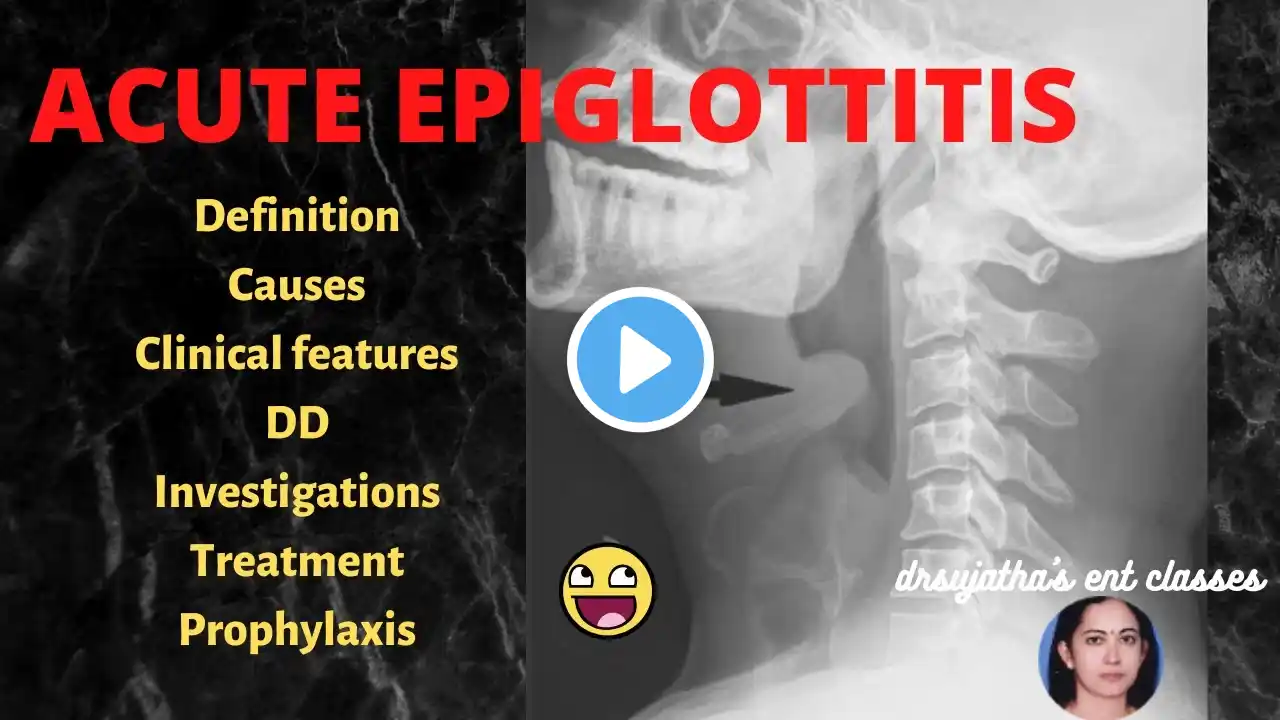
Acute Epiglottitis ; Definition, Causes, Symptoms, Diagnosis, Treatment, Complications, Prevention
Acute epiglottitis is a rare but potentially life-threatening condition characterized by inflammation of the epiglottis, the flap-like structure that separates the trachea (windpipe) from the esophagus. Causes: 1. Bacterial infections (Haemophilus influenzae type b, Streptococcus pneumoniae) 2. Viral infections (less common) Symptoms: 1. Sudden onset of severe sore throat 2. Difficulty swallowing 3. High fever 4. Drooling 5. Stridor (high-pitched sound while inhaling) 6. Respiratory distress Treatment: 1. Immediate medical attention 2. Securing the airway (intubation or tracheostomy) 3. Antibiotics 4. Corticosteroids to reduce inflammation 5. Supportive care (oxygen, fluids) Complications: 1. Airway obstruction 2. Respiratory failure 3. Cardiac arrest Prevention: 1. Vaccination (Hib and pneumococcal vaccines) 2. Practicing good hygiene 3. Avoiding close contact with infected individuals Acute epiglottitis is a medical emergency. If you suspect someone has acute epiglottitis, call emergency services immediately. Prompt treatment can help prevent serious complications and improve outcomes. #Epiglottitis


